Extra Easy Chinese Cashew Chicken (Better Than Takeout!)

Cashew Chicken is a typical main dish of oriental cuisine, especially Chinese. A recipe with a spicy and irresistible taste, characterized by the perfect balance of flavors and consistencies between the delicacy of the meat morsels and the crunchiness of the toasted cashews.
Easy to make, to prepare it you just need to dip the chicken, cut into cubes, in a mixture of beaten egg whites and corn starch, then fry the meat for a few moments in boiling seed oil and then leave it to cook on the stove together with the toasted cashews, a small glass of soy sauce and a splash of rice wine: the latter will give the dish a slightly sweetish taste. Once ready, all you have to do is complete the whole thing with the raw spring onion sliced and then bring the chicken to the table, hot and steaming, for an ethnic lunch or dinner together with the inevitable chopsticks, the typical chopsticks.
What is Chinese Cashew Chicken? History and Origins
Cashew Chicken is a dish that has roots in Chinese cuisine but has evolved across different cultures, particularly in the United States, where it is now a popular takeout option. The dish traditionally combines tender chicken pieces with the rich, nutty flavor of cashews, creating a delightful contrast between textures. It is often cooked in a wok with a savory sauce made from soy sauce, rice wine, and other aromatic ingredients. Although the exact origins of cashew chicken are debated, it is widely believed to have been introduced to the West by Chinese immigrants in the 20th century. It has since become a staple of Chinese-American cuisine, often enjoyed for its balance of flavor and simplicity.
What's The Difference Between Kung Pao Chicken and Cashew Chicken?
Kung Pao Chicken is known for its spicy and tangy flavor, typically made with Sichuan peppercorns, dried red chilies, and a sauce that includes soy sauce, vinegar, and sugar. It also includes peanuts as the primary nut.
On the other hand, Cashew Chicken features a milder, slightly sweeter sauce and uses cashews instead of peanuts, offering a more subtle nutty flavor. While both dishes are stir-fried with chicken, the heat level and type of nuts are what set them apart.
Pro Tips for The Best Chinese Cashew Chicken
- Lightly toasting the cashews before adding them to the dish enhances their flavor and crunch. You can toast them in a dry skillet for a few minutes until golden brown.
- For added tenderness and flavor, marinate the chicken in a mix of soy sauce, cornstarch, and a dash of sesame oil before cooking. This helps to lock in moisture and makes the chicken more flavorful.
- Chinese stir-fry is best done on high heat to achieve that signature crispy texture. Make sure your wok or skillet is hot before adding the ingredients.
- Overcooking the chicken can make it dry and tough. Stir-fry the chicken until it's just cooked through for the juiciest result.
- Cashew Chicken is best enjoyed right after it's cooked. The cashews retain their crunch, and the chicken stays tender when served fresh from the pan.
What's The Best Cut of Chicken For This Dish? Breast or Thighs?
The best cut of chicken for Cashew Chicken is chicken thighs. Thighs are more tender and juicy compared to chicken breasts, which can dry out easily during stir-frying. Thighs also have a bit more fat, which adds flavor and helps the chicken stay moist throughout the cooking process, making them ideal for this dish. However, if you prefer a leaner option, chicken breasts can also work well, but just be careful not to overcook them.
Can I Add Vegetables to This Dish?
Of course! While traditional Cashew Chicken might only include chicken and cashews, feel free to add vegetables like bell peppers, onions, or snow peas to add color, crunch, and flavor.
What's The Best Pan for Frying the Chicken?
For cooking, prefer the wok, the traditional cast iron pan which, thanks to its particular oval shape, with a flared and high wall, will allow for uniform browning of the meat.
What Can I Serve With Cashew Chicken?
Cashew Chicken is typically served with steamed white rice or fried rice to soak up the savory sauce. You can also pair it with stir-fried vegetables like broccoli, bell peppers, or snow peas for added crunch and color. For a more authentic touch, you might serve it with egg rolls or spring rolls as appetizers.
Can I Make Cashew Chicken Ahead of Time?
Yes! To do so, cook the chicken and sauce as usual, but store the dish separately from the cashews to prevent them from getting soggy. When you're ready to serve, reheat the chicken, then add the toasted cashews just before serving for maximum crunch. You can also prepare the sauce and marinate the chicken a day in advance for more flavor.
Does It Freeze Well?
Cashew Chicken does not freeze well due to the texture of the cashews, which can become soggy once thawed. While the chicken and sauce can be frozen for later use, it's best to add fresh cashews when reheating to preserve their crunch. For the best results, it's recommended to store the chicken and sauce separately and add the cashews just before serving.
How to Store Chinese Cashew Chicken
To store leftover Cashew Chicken, place it in an airtight container and refrigerate it for up to 3-4 days. If you’ve stored the cashews separately, add them just before reheating to maintain their crunch.
When reheating, use a skillet or microwave until the dish is heated through.
Ingredients
How to Make Chinese Cashew Chicken
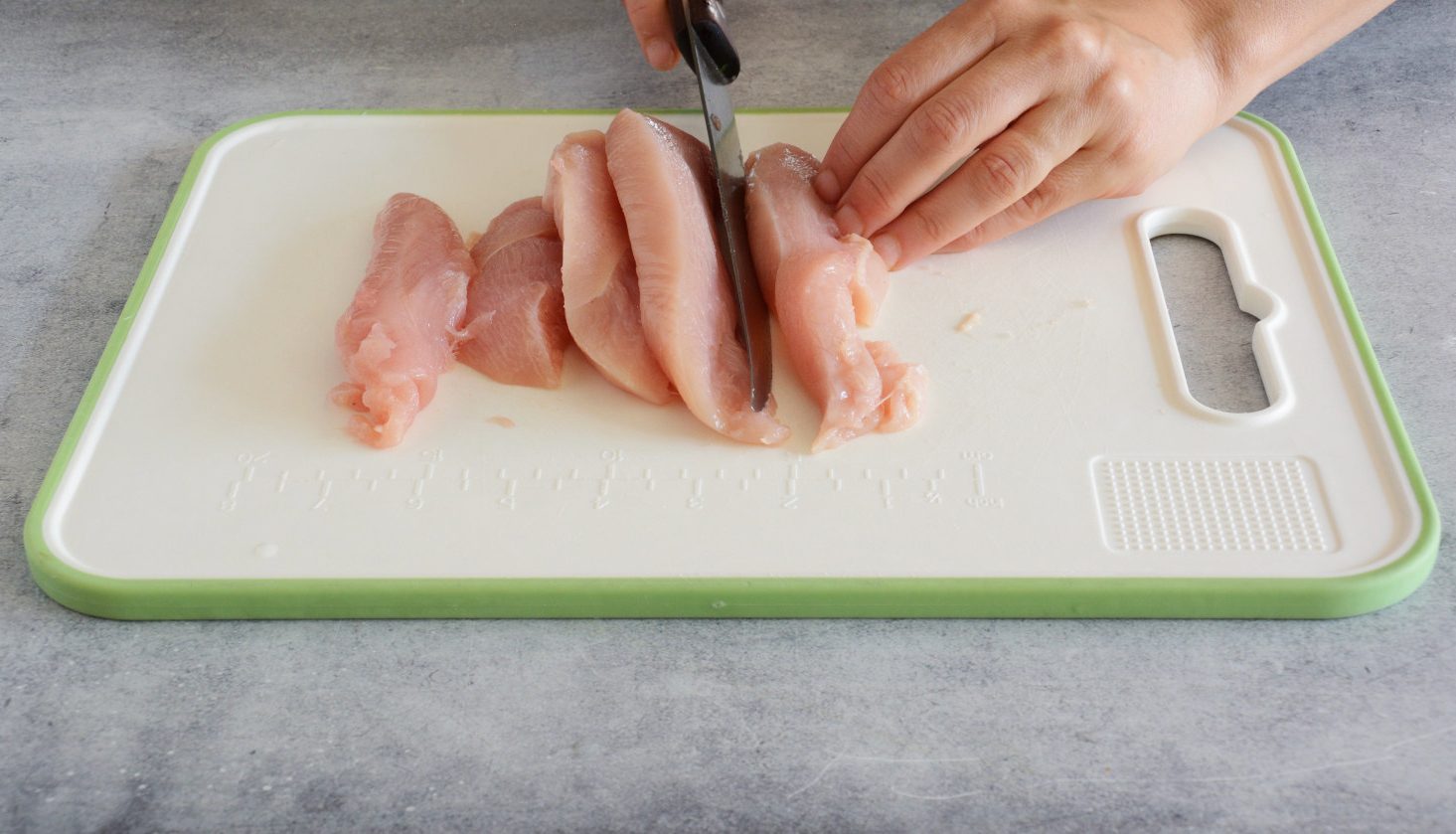;Resize,width=712;)
Cut the chicken into strips about 3cm wide.
Cut the chicken into strips about 3cm wide.
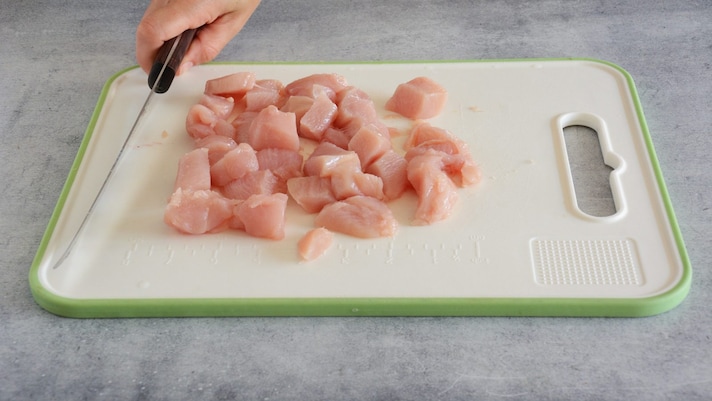
Then cut the strips into cubes.
Then cut the strips into cubes.
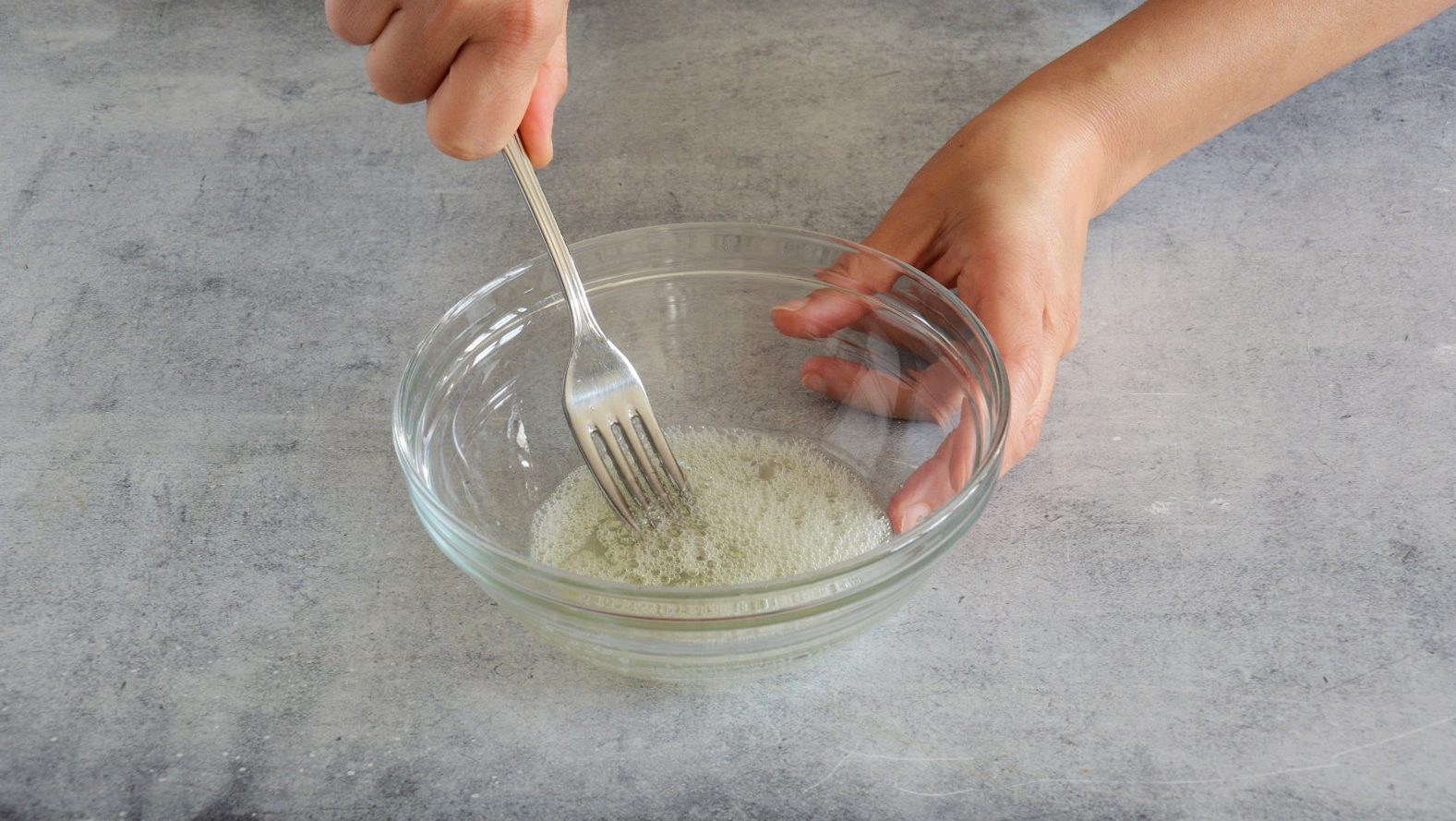;Resize,width=712;)
In a bowl lightly beat the egg white with the prongs of a fork.
In a bowl lightly beat the egg white with the prongs of a fork.
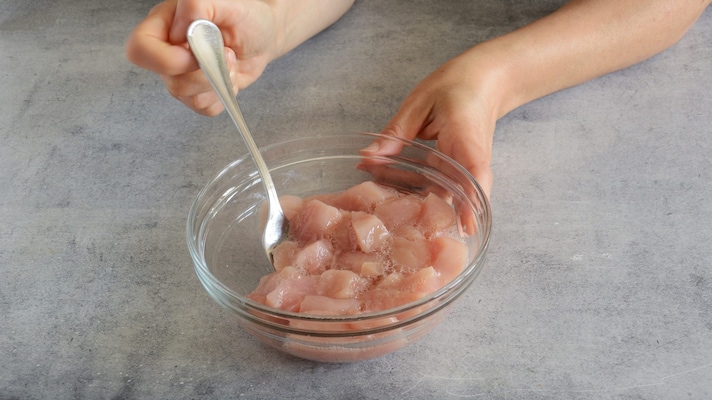
Add the chicken and mix thoroughly.
Add the chicken and mix thoroughly.
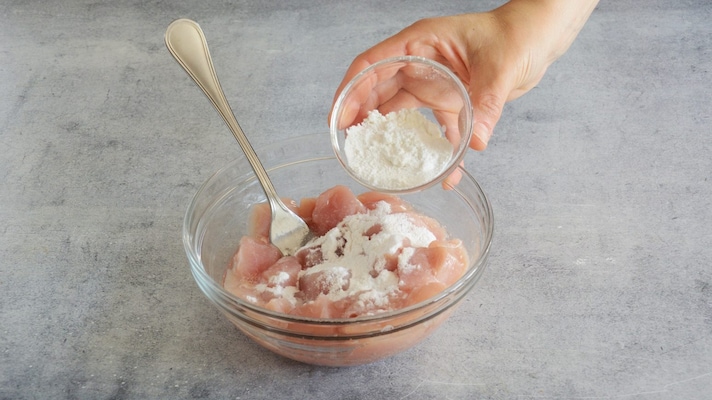
Then add the cornstarch and season with salt.
Then add the cornstarch and season with salt.
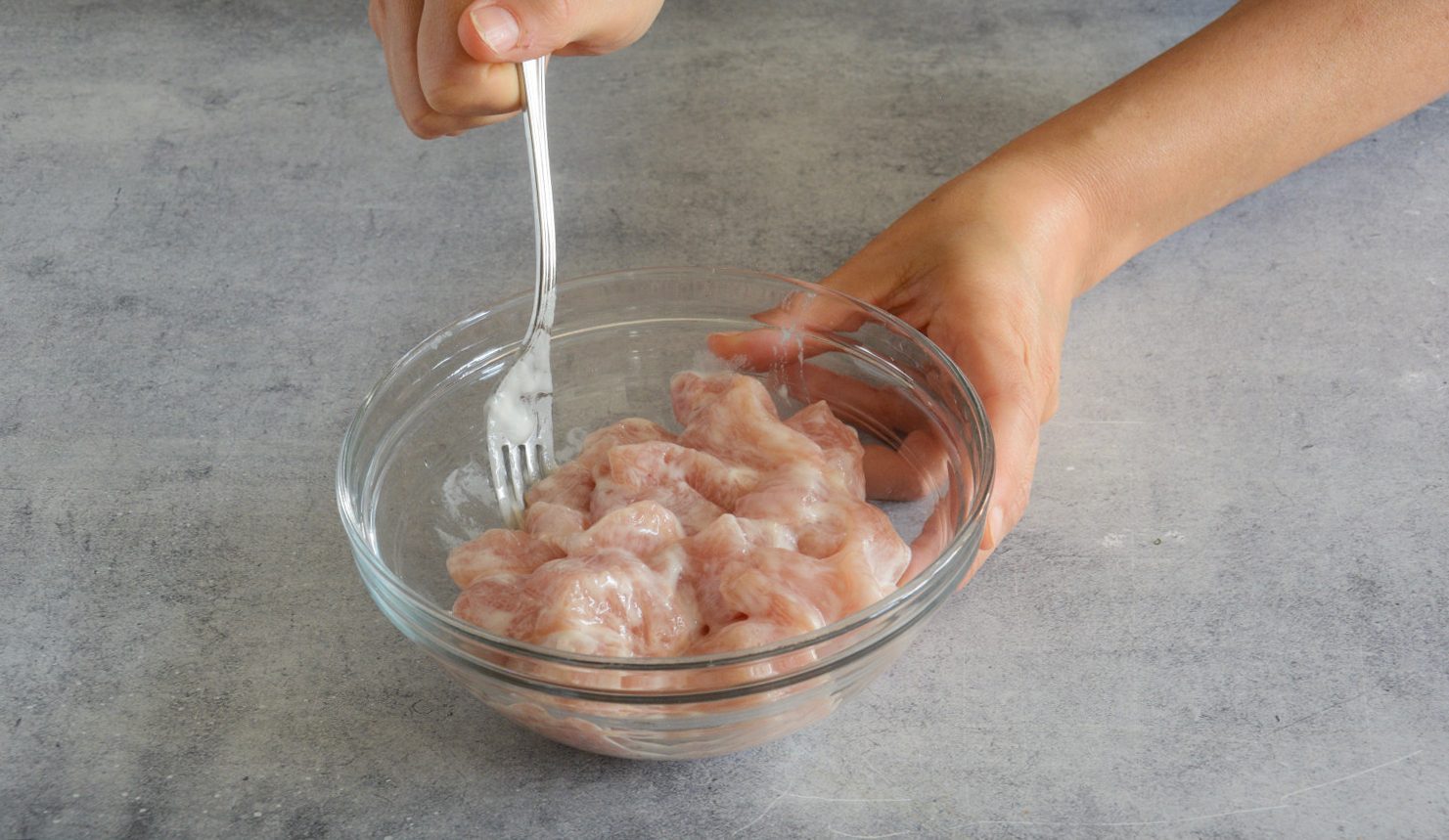;Resize,width=712;)
Mix everything well.
Mix everything well.
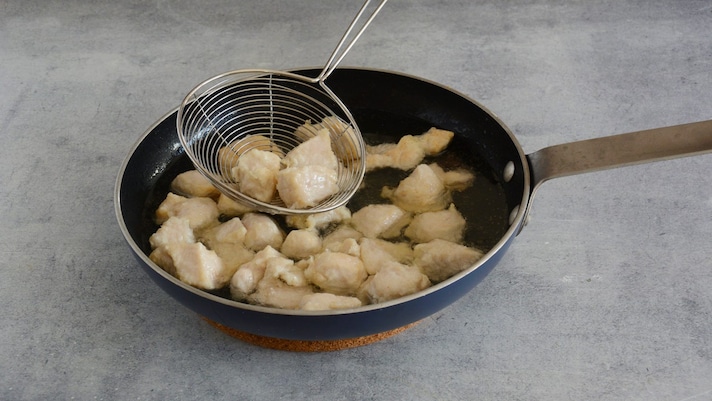
Plunge the chicken into plenty of boiling peanut oil brought to a temperature of 350°F/175°C for a couple of minutes and, as soon as it starts to whiten, remove it with a slotted spoon.
Plunge the chicken into plenty of boiling peanut oil brought to a temperature of 350°F/175°C for a couple of minutes and, as soon as it starts to whiten, remove it with a slotted spoon.
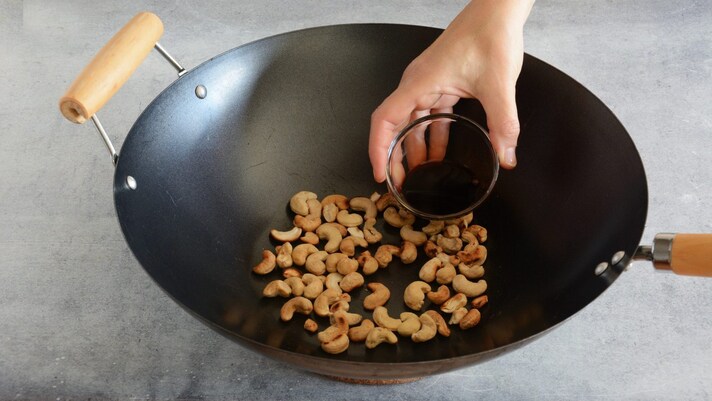
In a wok, toast the cashews, being careful not to burn them, then add the soy sauce.
In a wok, toast the cashews, being careful not to burn them, then add the soy sauce.
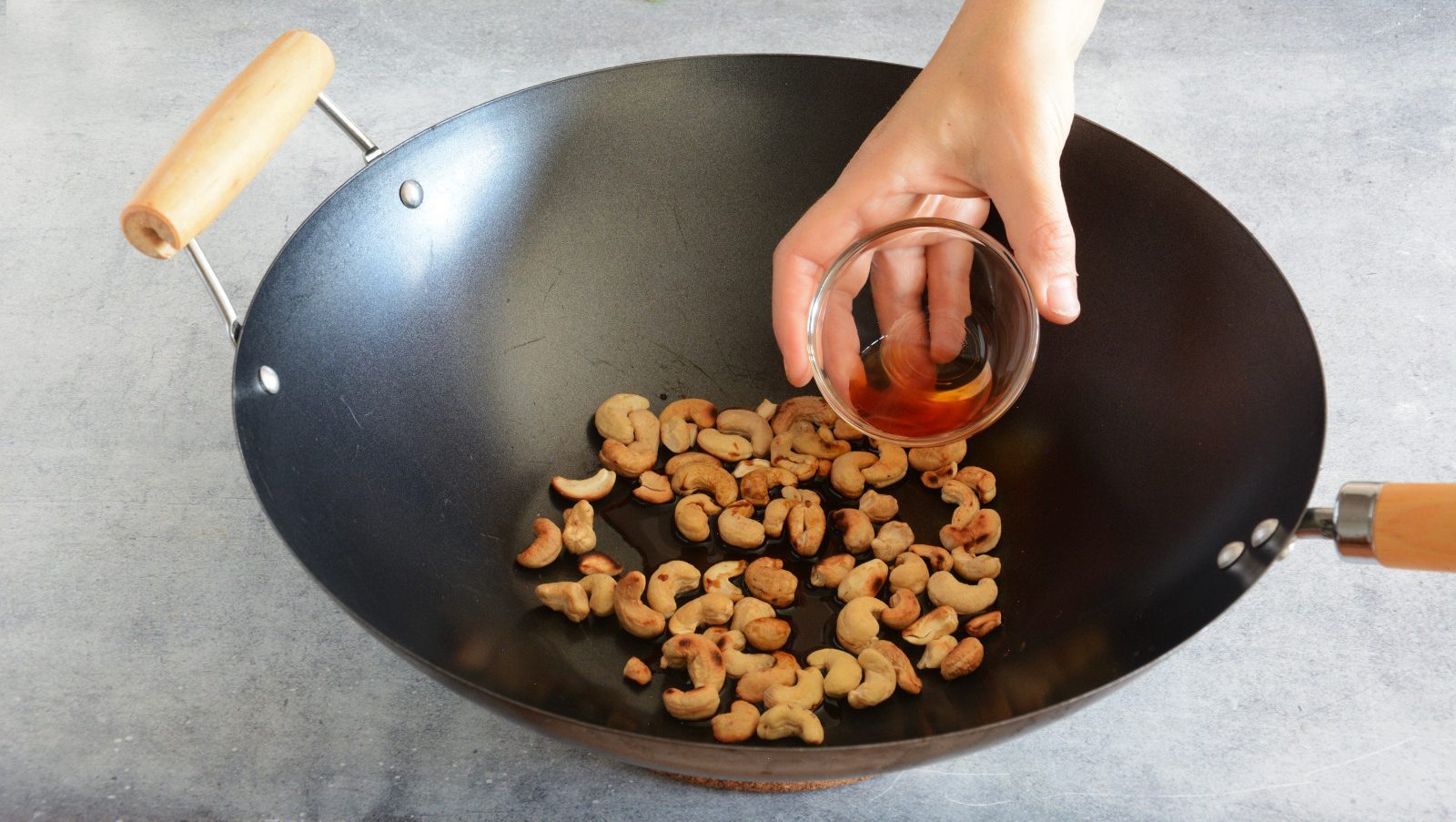;Resize,width=712;)
Then, add the rice wine.
Then, add the rice wine.
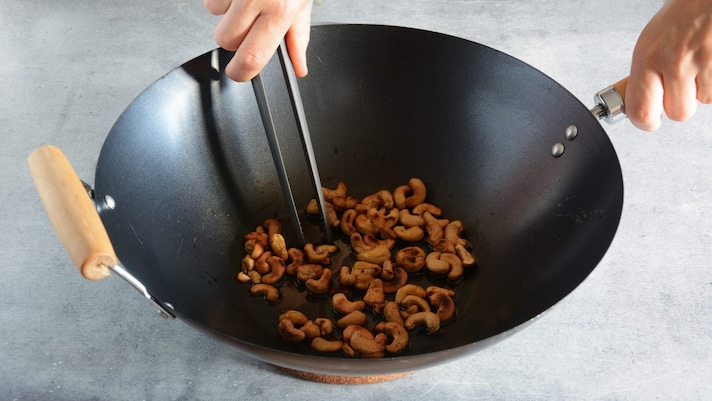
Let the cashews flavor for about 2-3 minutes.
Let the cashews flavor for about 2-3 minutes.
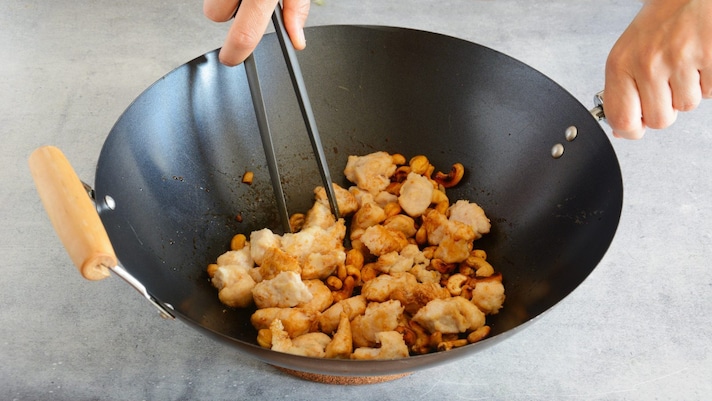
Then, add the seared chicken, mix carefully and continue cooking over medium-low heat for 7-8 minutes: if the liquid should reduce too much, add a couple of spoons of hot water.
Then, add the seared chicken, mix carefully and continue cooking over medium-low heat for 7-8 minutes: if the liquid should reduce too much, add a couple of spoons of hot water.
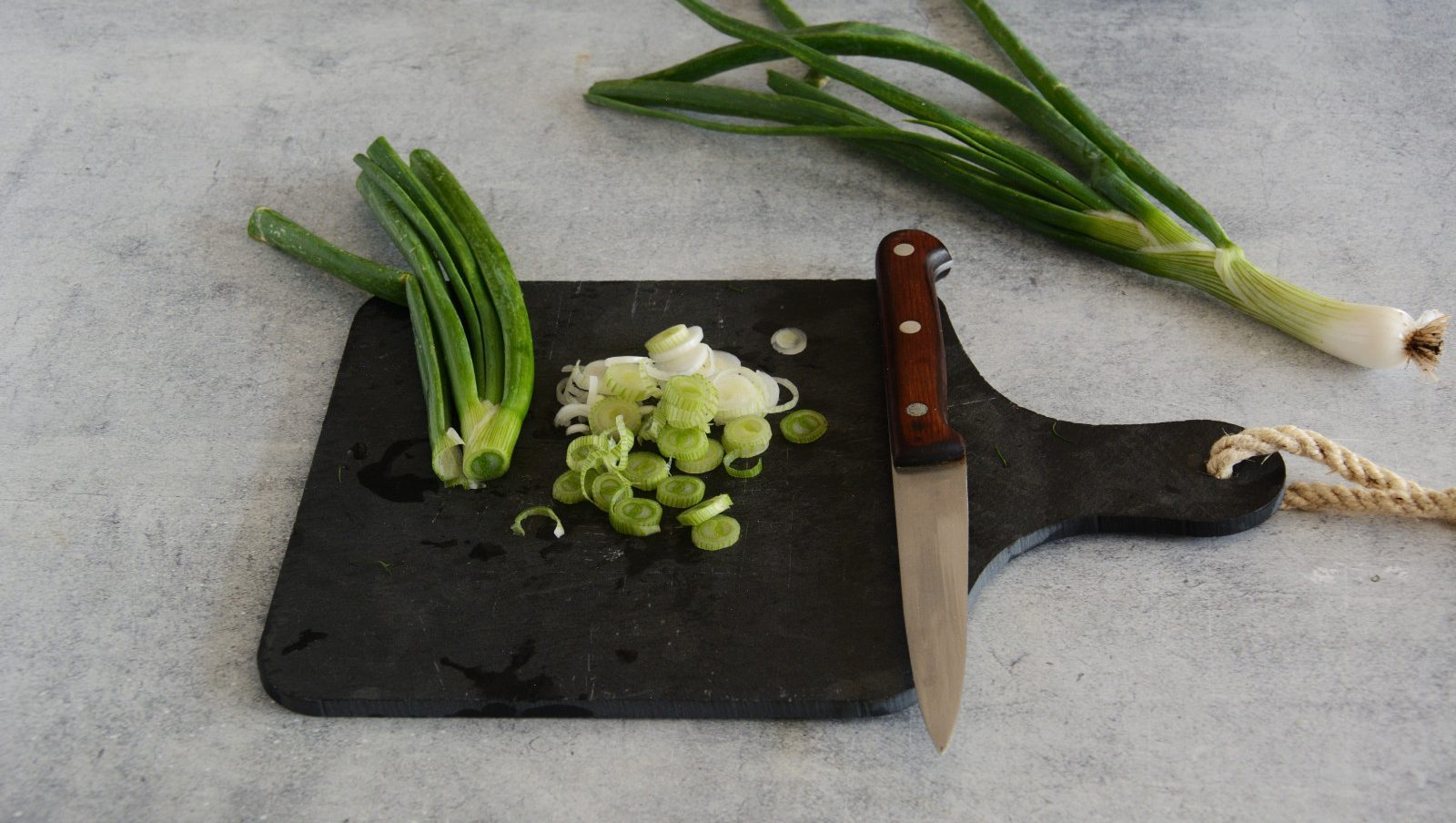;Resize,width=712;)
Meanwhile, wash the spring onion and cut it into slices.
Meanwhile, wash the spring onion and cut it into slices.
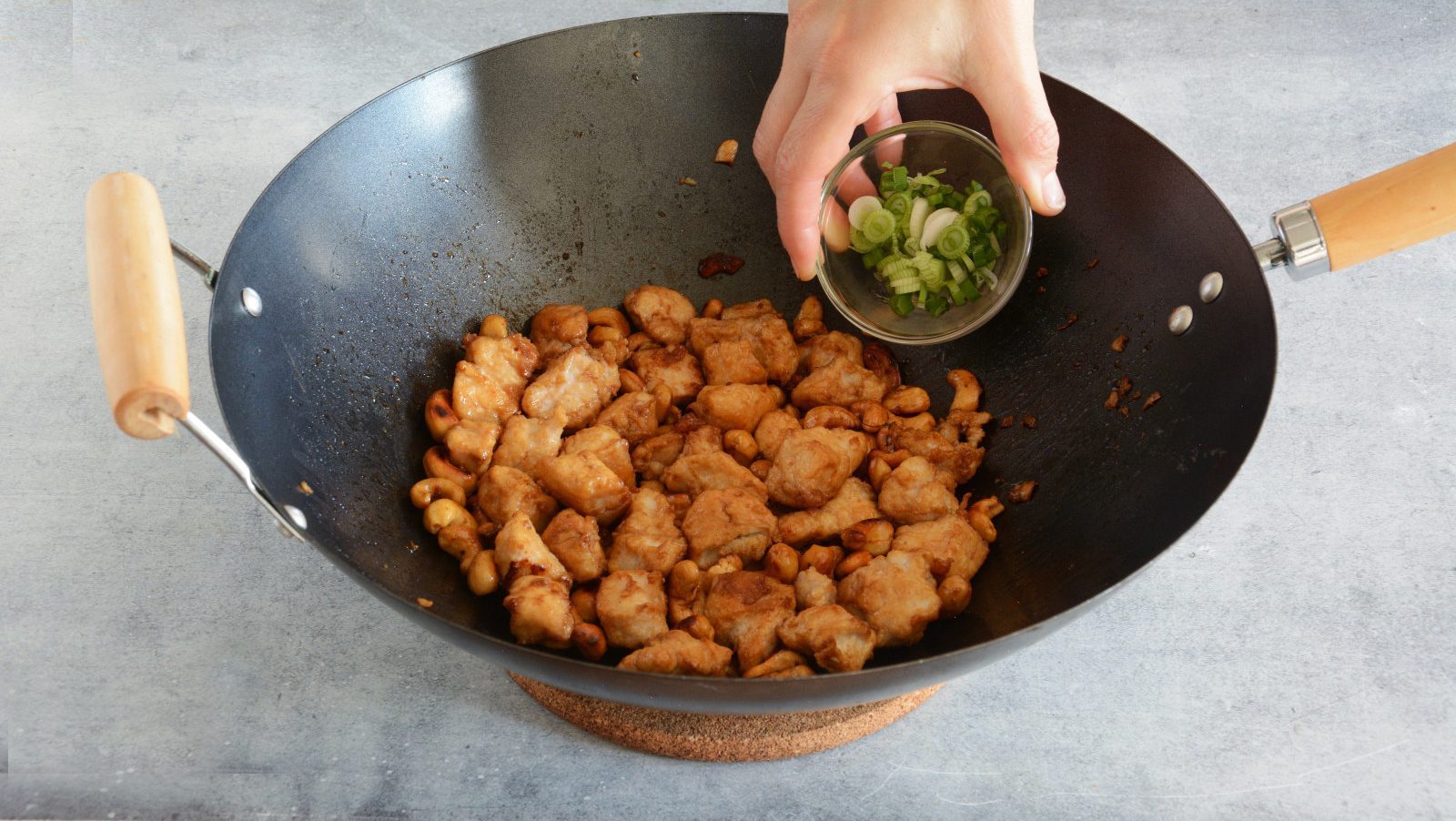;Resize,width=712;)
Once the cooking time is up, turn off the heat and flavor the meat with the spring onion slices.
Once the cooking time is up, turn off the heat and flavor the meat with the spring onion slices.
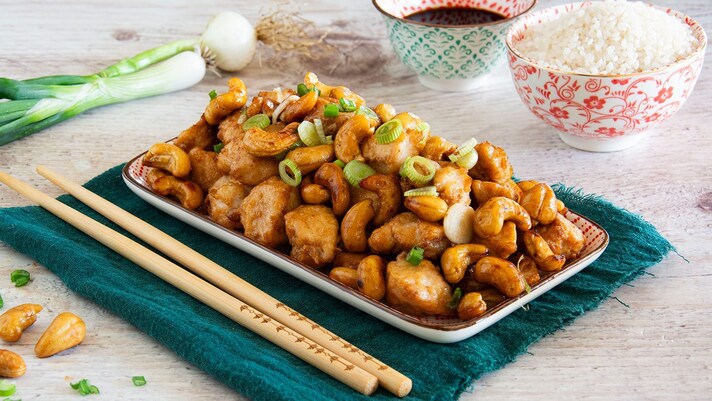
Enjoy while still piping hot!
Enjoy while still piping hot!
;Resize,width=767;)

;Resize,width=712;)
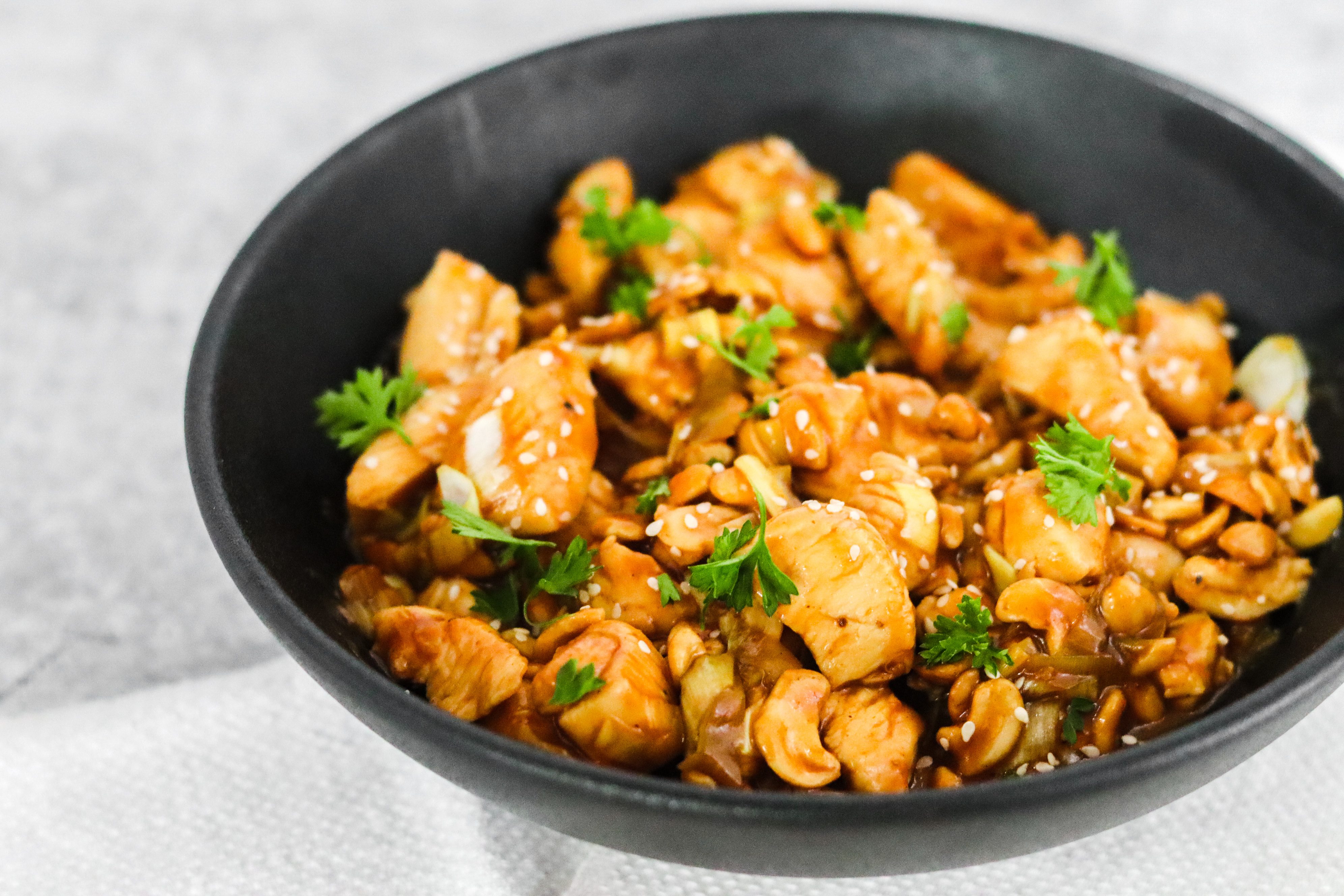;Resize,width=712;)
